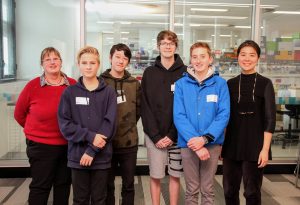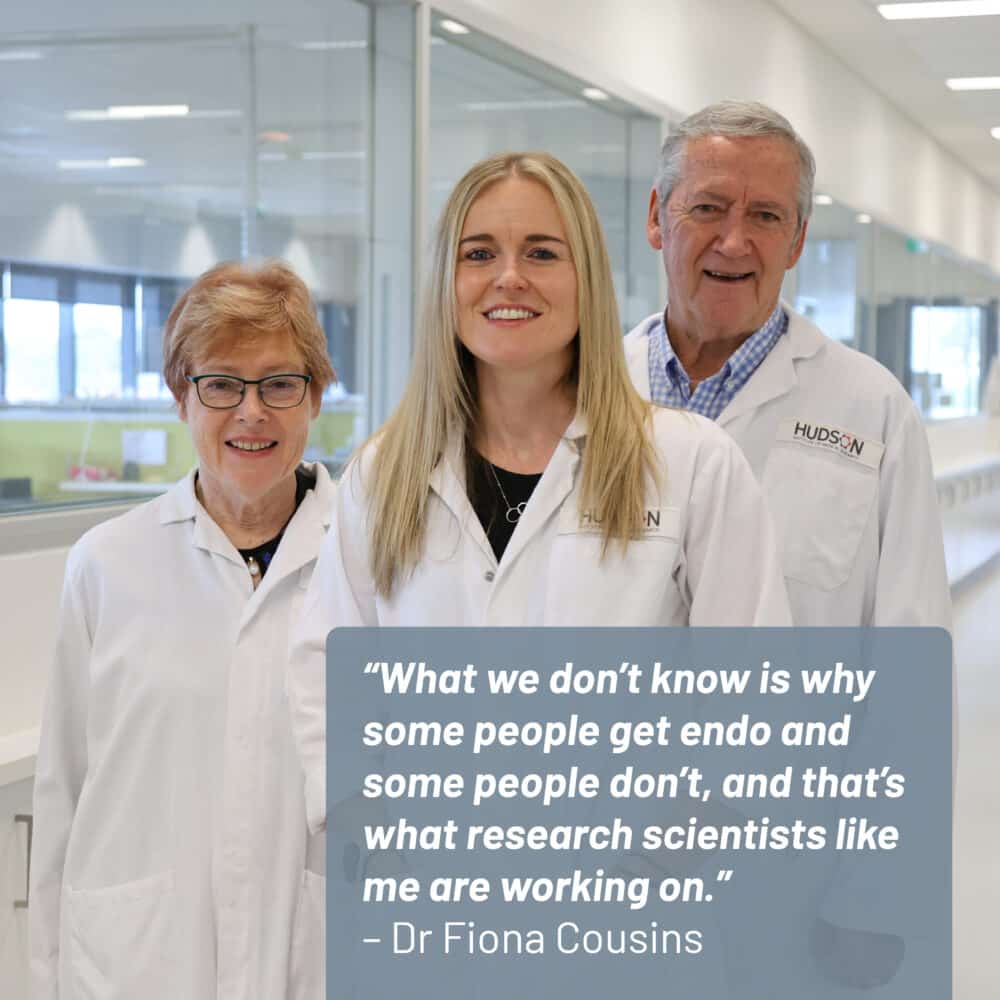BrainSTEM Innovation Challenge
By Hudson Institute communications
A recent addition to the STEM landscape, The BrainSTEM Innovation Challenge has provided an opportunity for Hudson Institute PhD student, Steph Huang to mentor local high school students and address gaps in scientific education.

Sid Verma, a parent, entrepreneur and STEM advocate set up the The BrainSTEM Innovation a few years ago. In 2015, Verma travelled overseas to watch his 15-year-old son take part in an international science challenge. At the event Verma noted that overseas students who had been mentored by a scientist in their local area produced a higher quality of work, work which also had more real world applicability.
Unable to find an existing program in Australia, Verma decided to set up the BrainSTEM Innovation Challenge. This 12-week program is offered to Melbourne Metropolian students interested in a practical STEM learning experience alongside a STEM mentor.
Steph Huang, a PhD student in the Regulation of Interferon and Innate Signalling Research group, volunteered her services as a mentor for this program. Over the last couple of months she worked with four students from Eltham High School introducing them to CiiiD Postgraduate and Honours students and taking them to visit the world class facilities at our Precinct.
For the BrainSTEM challenge, the students researched the clinical application of viruses and stem cells, CRISPR gene editing, CAR-T cell therapy, and microbial degradation of waste.
Identifying a gap in educational resources
While researching, the group found that there was a lack of information available for students who were at an intermediate level, like them. The information that they found was either too basic or filled with high-level terminology that they were not able to understand.
The students had a collective brainwave and decided to build a website that could act as a resource for scientific knowledge for others, who are neither beginners nor experts. The aim was to make scientific knowledge more accessible and less intimidating to intermediate learners.
The students presented their website project to the BrainSTEM Innovation Challenge audience on Thursday, June 20 2019 at Swinburne to a warm response.
Reflecting on the process Steph Huang says: “ The students enjoyed themselves and learned a lot in the process. As a mentor I was impressed by the capacity of the students take on any intellectual challenge. My role was to gather and direct their collective capacity for innovation towards a specific problem and to let them do the rest.”
An invitation to contribute
The new site is called Sciencepedia and you can visit it here. The students invite others to share the link with other who could use the information, and to provide any feedback or additional contributions through the website’s ‘contribute’ page.
Hudson Institute is proud to contribute towards nurturing the next generation of scientists and to helping them to resolve real world challenges.
Contact us
Hudson Institute communications
t: + 61 3 8572 2697
e: communications@hudson.org.au
About Hudson Institute
Hudson Institute’ s research programs deliver in five areas of medical need – inflammation, cancer, reproductive health, newborn health, and hormones and health. More
Hudson News
Get the inside view on discoveries and patient stories
“Thank you Hudson Institute researchers. Your work brings such hope to all women with ovarian cancer knowing that potentially women in the future won't have to go through what we have!”


